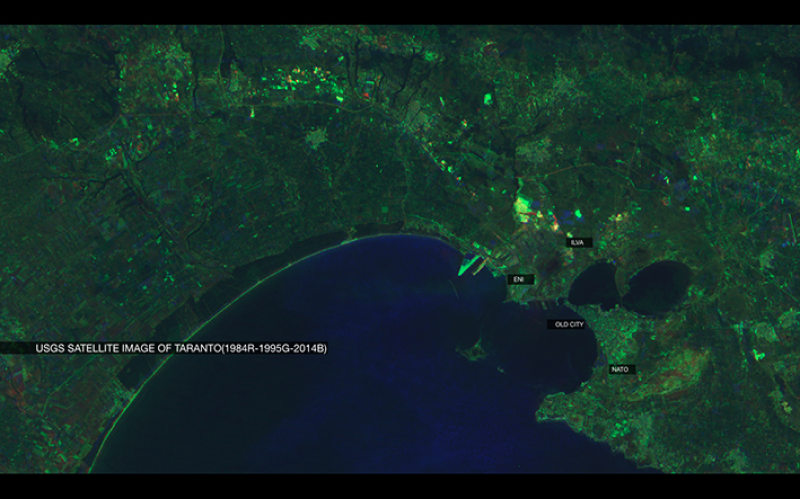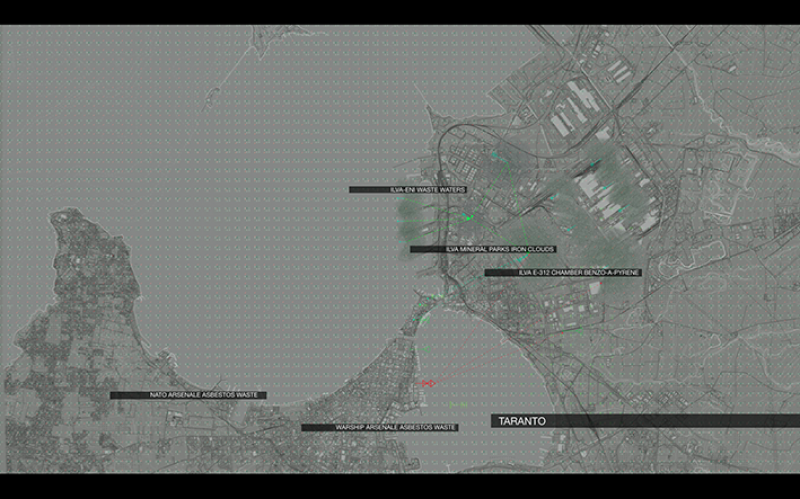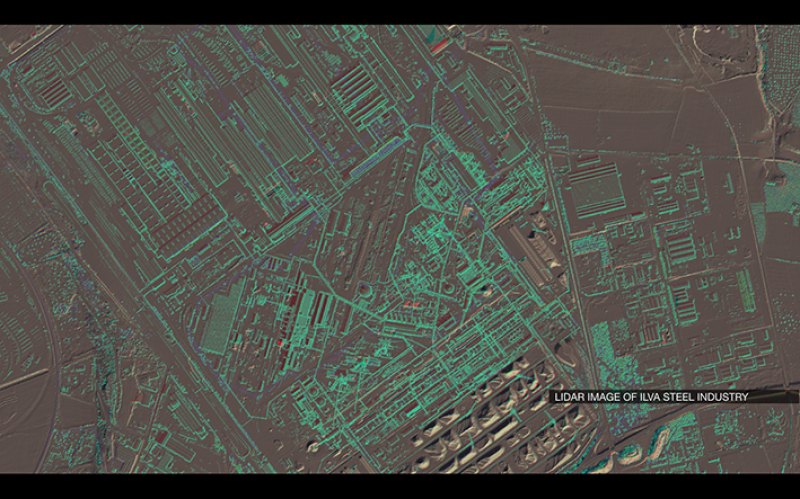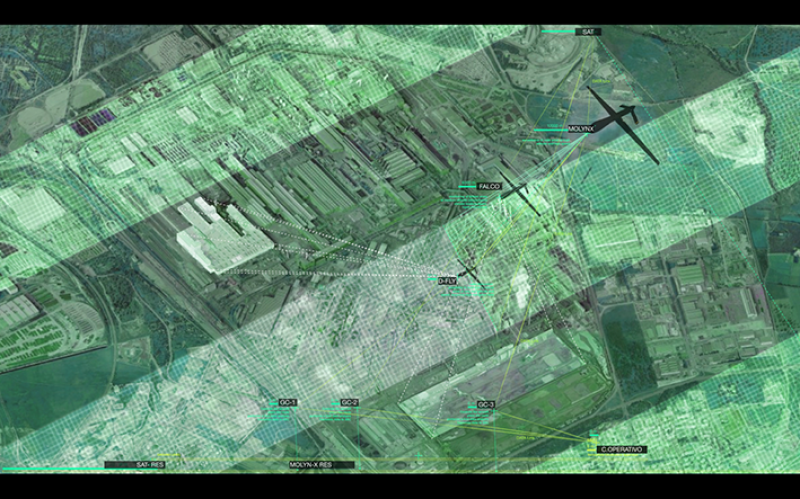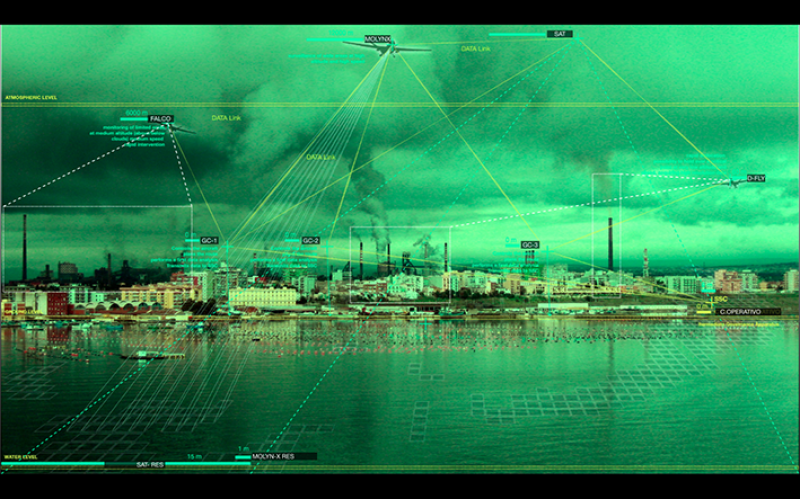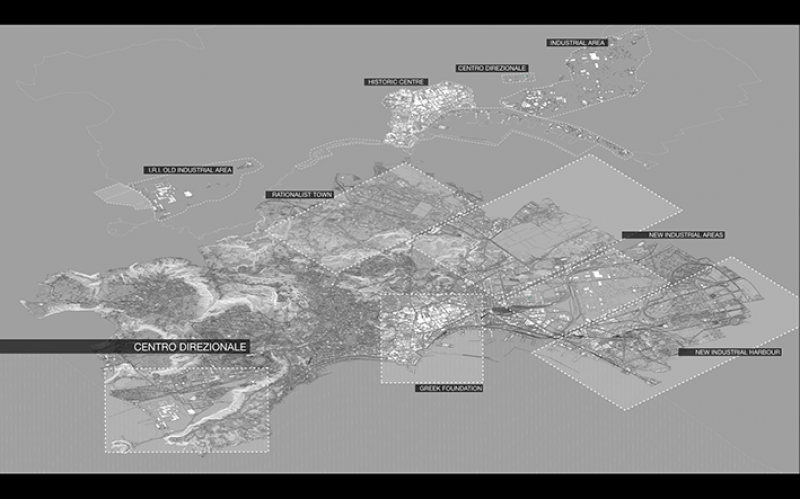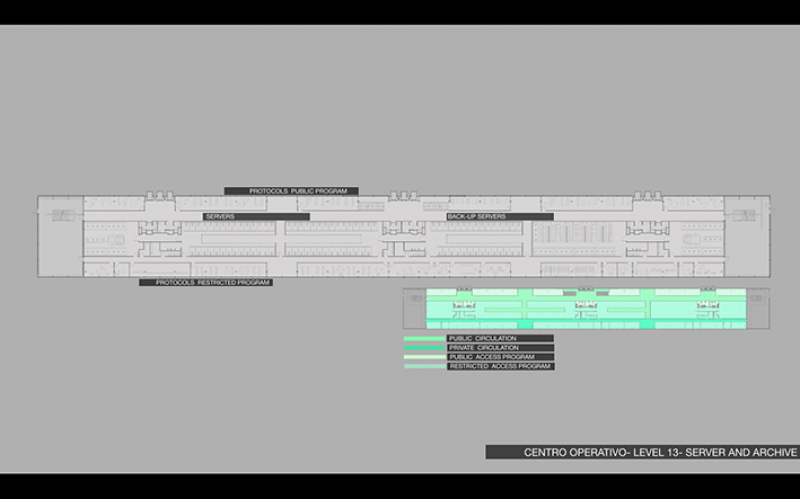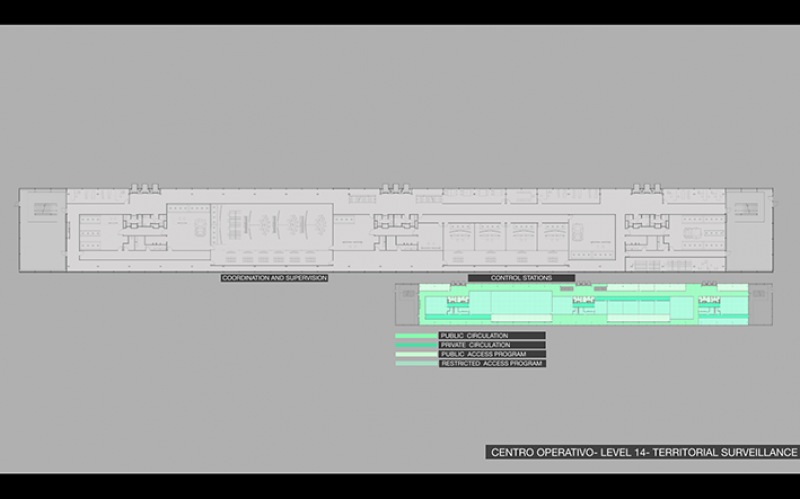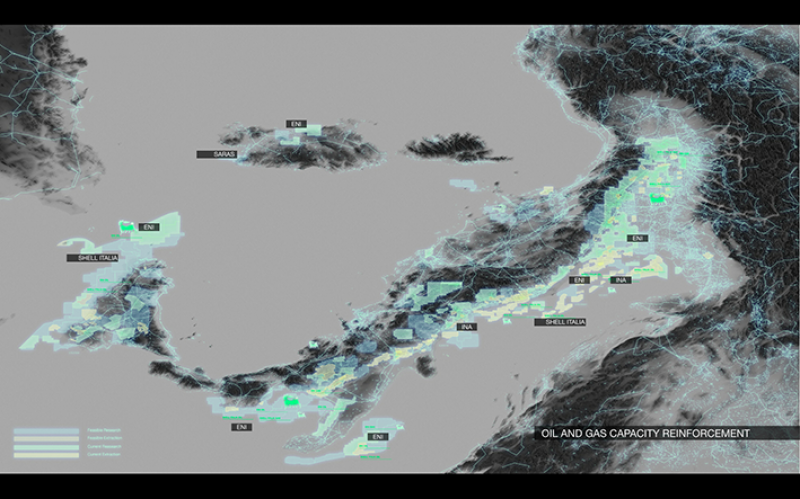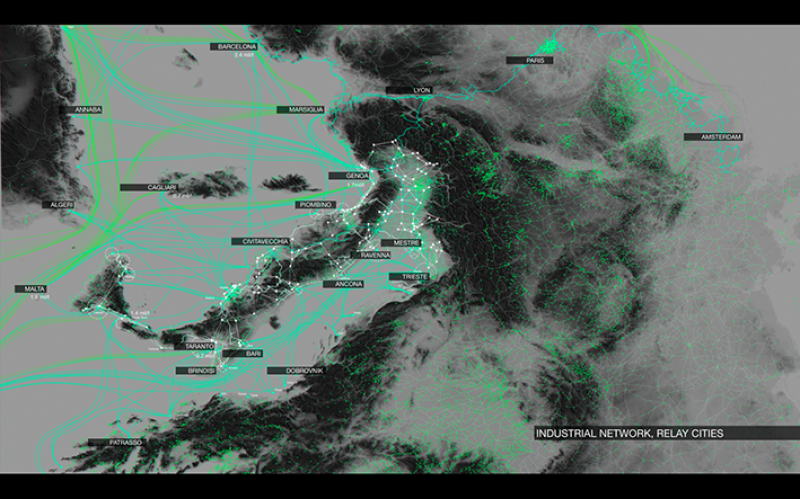Architecture is defined here within the concept design of an operative apparatus, called CENTRO OPERATIVO. It engages processes, distribution of functions and networks, it provides a frame for evidence and action tools relating the opeartions of industry to the operations of the city.
The project of a Centro Operativo reshapes mediums of operation within a complex field of practices, emerging from an ever more fragmented set of protocols of action and presentation of evidence that constitute the obscure scenario of Italian and European de-industralisation. While de-industrialisation is usually thought of as abandonment, here we investigate the prolonged operation of industrial polities in a rapidly changing environment.
The slow dismantlement of the technical and political apparatus of territorial governance encounters all sorts of slippages, resistance and attrition. It is within these transformations that we identify the forms of the italian architecture of industrial systems as being the most hardened elements of its territories. The pervasive deployment of a singular structure of centralised control and management of the industrial complex – the Centro Direzionale developed by modern italian architecture a the margins of the historical city – appears today to be the major hindrance to rethink production and manufacture at an industrial scale.
The project focus is on one major case of hindrance: the steelworks at Taranto. The pollution and governance break-down associated to its operations are the sarting point for an exploration of the potentials of contemporary large-scale industry in Italy. The co-evolution of the Italian Republic and the European integration process are traced here in their entanglment with the forms of industrial production.
From Centro Direzionale to Centro Operativo: the project inquires into the possibility of maintaining an vast industrial system in the 21st Century while giving away with the over-centralised and systemic structures of the modern Italian city. Thought of as a flexible governance institution, able to operate at an intermediate level between Industry and State, the proposed new institution is an operative device of management and redistribution of work. It acts trough multiple agents, and protocols in a distributed and non-centred system.

